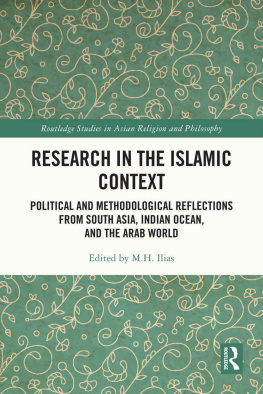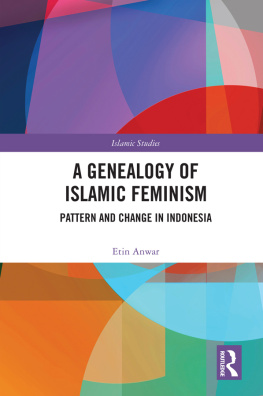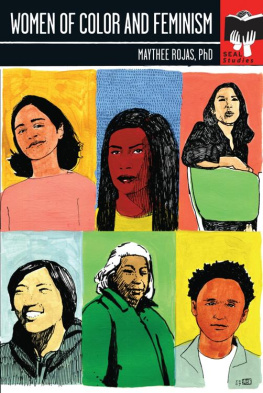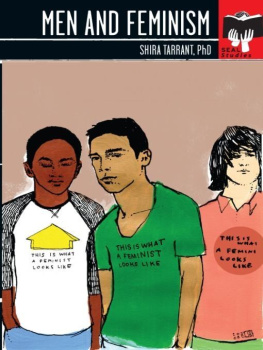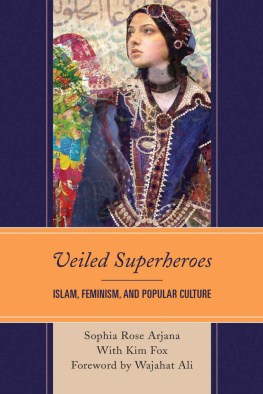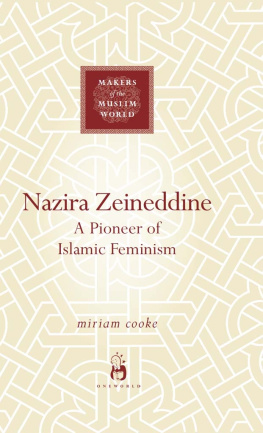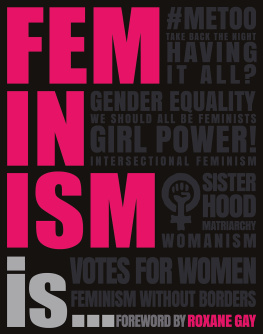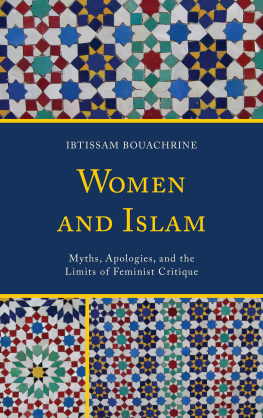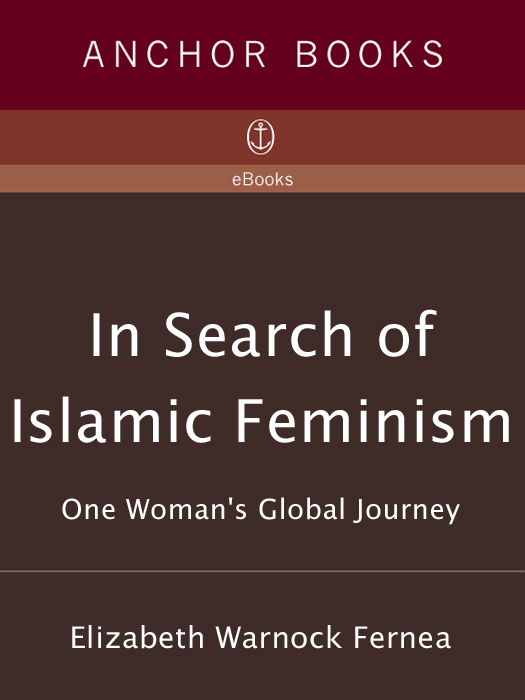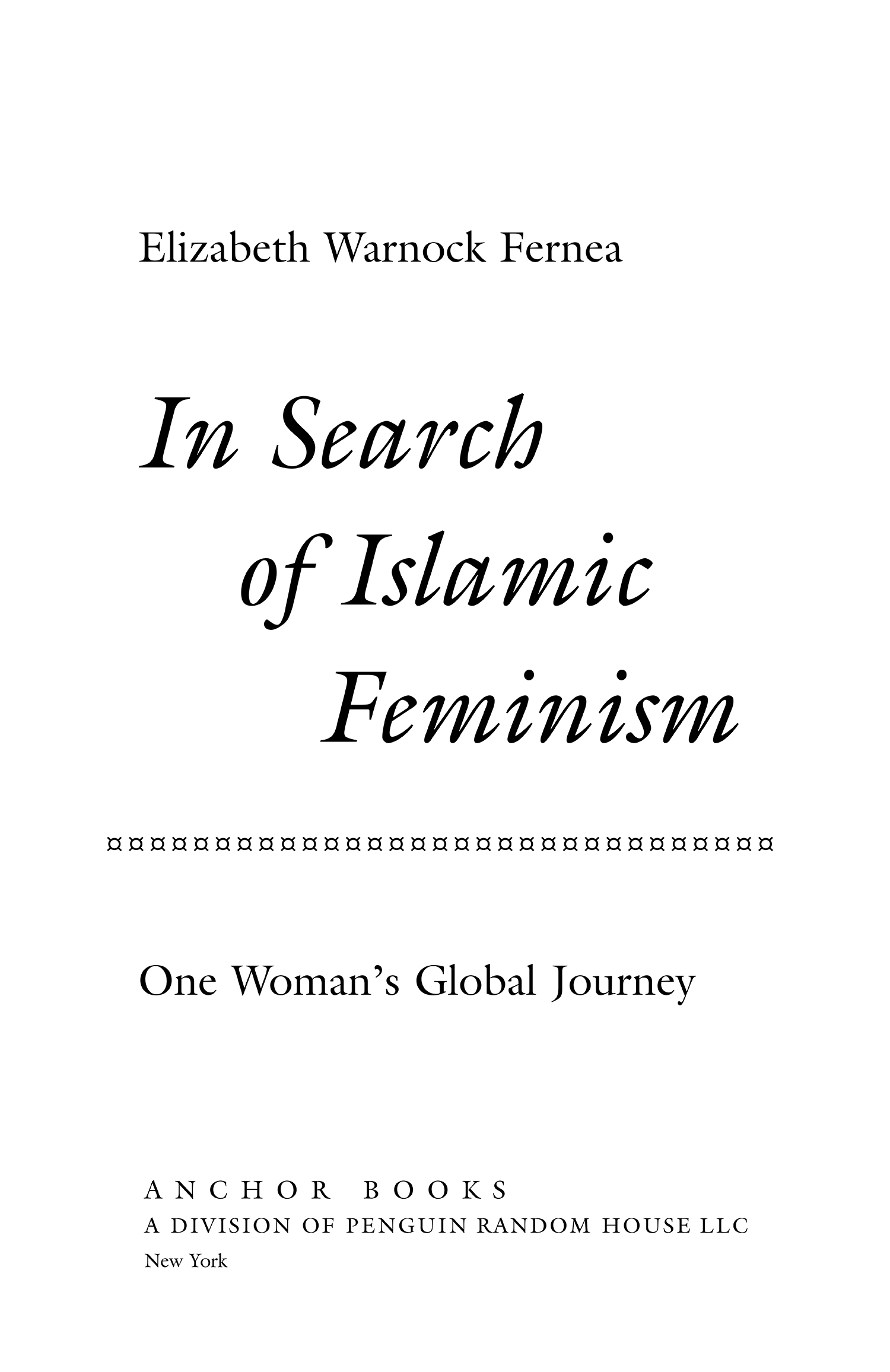Books by Elizabeth Warnock Fernea
Remembering Childhood in the Middle East: Memoirs
from a Century of Change
Guests of the Sheik: An Ethnography of an Iraqi Village
The Arab World: Forty Years of Change
(with Robert A. Fernea)
The Struggle for Peace: Israelis and Palestinians
(with Mary Evelyn Hocking)
A Street in Marrakech
Children of the Muslim Middle East
Nubian Ethnographies
(with Robert A. Fernea)
A View of the Nile
Middle Eastern Muslim Women Speak
(with Basima Qattan Bezirgan)
Women and the Family in the Middle East: New Voices of Change
In Search of Islamic Feminism: One Womans Global Journey

FIRST ANCHOR BOOKS TRADE PAPERBACK EDITION, DECEMBER 1998
Copyright 1998 by Elizabeth Warnock Fernea
All rights reserved. Published in the United States by Anchor Books, a division of Penguin Random House LLC, New York, and distributed in Canada by Random House of Canada, a division of Penguin Random House Canada Limited, Toronto. Originally published in hardcover in the United States by Doubleday, a division of Penguin Random House LLC, New York, in 1998.
Anchor Books and colophon are registered trademarks of Penguin Random House LLC.
The Library of Congress has cataloged the Doubleday hardcover edition as follows:
Fernea, Elizabeth Warnock.
In search of Islamic feminism: one womans global journey/by
Elizabeth Warnock Fernea. 1st ed.
p. cm.
1. Muslim womenIslamic countries. 2. Women in IslamIslamic countries. I. Title.
HQ1170.F48 1998
305.486971dc21 97-27121
Anchor Books Trade Paperback ISBN9780385488587
Ebook ISBN9780307773852
www.anchorbooks.com
v3.1_r1
By 1997, Bob and I were fortunate enough to have been blessed with three grandchildren: Isabel Andrea Colorado, Maya Elizabeth Colorado, and Weston Creekmore Fernea. It is to them that this book is dedicated.
Contents
Acknowledgments
The idea of this book was first suggested to me by Martha Levin, publisher of Anchor Books. Something about Islam, B.J., which is your interest, she said, and something about feminism, which is my interest. I was hesitant, partly because I had just returned from the Middle East and was doubtful about possibilities for finding any new feminist trends, and partly because it seemed more appropriate, in this day and age, for such a book to be done, not by me, but by a Muslim woman. Martha responded that the perspective of an American feminist with long-standing interest in the Muslim world might be useful for an American audience, a view with which my longtime agent, Gloria Loomis, enthusiastically agreed. And so I set out, and over two years of traveling, discovered that the realities of Muslim womens lives today have far surpassed the discourse about those lives with which we have been presented in the West. Thank you, Martha, thank you, Gloria, for your encouragement.
In this effort, I owe thanks to many other people. Hospitality was extended by Leila Abouzeid, Roberta Micallef, Akile Gursoy, Taghreed al-Qudsi and Shafeeq Ghabra, Aziza al-Hibri, Bill and Andrea Rugh, Randa Shaath, and Tom Hartwell. For other kinds of friendly assistance, appreciation to Sue Buret, Deborah Kapchan, Ferial Ghazoul, Hesna Mekdashi, Anne Johnson, Lora Berg, Lamia al-Gailani, Asma al-Gailani, Ronda Aboubakr, Judy Blanc, Esther Raizen, Rita Giacoman, Eileen Kuttab, Saif and Zeinab Abbas Mohammed, Eleanor Doumato, Donald Powell Cole, Basima Bezirgan, Halit and Gulper Refiq, Pat Ivey, Leila Ahmed, Suad Joseph, and Margaret Ann Uren. Special thanks to longtime friend and former editor Sally Arteseros. To my old friends in the village of Al Nahra, Iraq, who welcomed me and asked for new copies of Guests of the Sheik, the book in which they appear, I can only say how wonderful it was to be able to briefly renew our friendship after forty years of separation.
Colleagues at the University of Texas at Austin, where I teach, have been supportive, including James Garrison, chairman of the Department of English; Abraham Marcus, director of the Center for Middle Eastern Studies; and good friends at the Center, Annes McCann-Baker, Deborah Littrell, Marjorie Payne, and Diane Watts. The University Research Institute gave me a one-semester grant to allow me to write, and a fellowship from the National Council on U.S.Arab Relations made the Saudi Arabia trip possible. Research assistants included Sharon Doerre, Jennifer OConnor, Mary Karam, Amal Chagumoum, Carl Hershiser, and Nafiz Aksehirlioglu. My children, Laura Ann, David, and Laila, and my daughter-in-law, Kim, read and soundly(!) critiqued various chapters. I thank them, and I thank Virginia Howell and Geraldine Behrens, who made the manuscript readable. Rob McQuillan and Siobhan Adcock at Anchor Books shepherded the material through the editing and publishing processes and I am grateful for their assistance, as well as for their patience. But it is to my husband, Robert Fernea, that I owe the greatest debt. Critic, companion, questioner, he helped me shape the experience of this journey, both intellectually and emotionally, into the book that follows. Any errors, however, are my own.
Austin, Texas
September 1997
Introduction
This is the story of a journey, from Austin, Texas, to Portland, Oregon, to the Middle East, North Africa, Central Asia, and back again. It began as a search for Islamic feminism, but over the months and years, has become a meditation about the nature of feminism, what it means to me, my family, and to my friends in East and West. Feminism. Equality between men and women. Is it possible? Rebecca West once wrote that the problem between men and women constitutes the rock on which civilization will either split asunder or survive, with honor. Feminism is the newest human effort to deal with that problem, and its basic premise is that in considering the rights of men and women, their physical differences should not affect the way they are treated legally, socially, or politically. This conviction has been viewed by many as universally applicable. I wanted to see whether my Muslim friends agreed, whether their own womens movements operated on a feminist premise, or whether they saw their own struggles for rights as different from womens movements in the West.
It is easy to forget that feminism is a very new idea in the world, an idea that has come into existence in my own lifetime. I was reminded of this when I talked with old friends at the fiftieth reunion of our Jefferson High School class, in Portland, Oregon. The class of 1945. In 1945, when I was a senior in high school, my father would read aloud to us each day from the newspaper. For those were stirring times. Freedom from tyranny. Freedom from want. The Holocaust had been stopped, a racist dictator unseated. Europe was reborn. It was very exciting. Full of possibilities. I had a scholarship to Reed College, in Portland, Oregon, and, most exciting of all, Bobby Bolton was coming home from the South Pacific. He had enlisted in the Marines when he graduated from Central Catholic High School. He had continued to write to me and the tone of his letters recentlywell, I decided not to mention this to my parents. And of course all that was still the mans choice.


